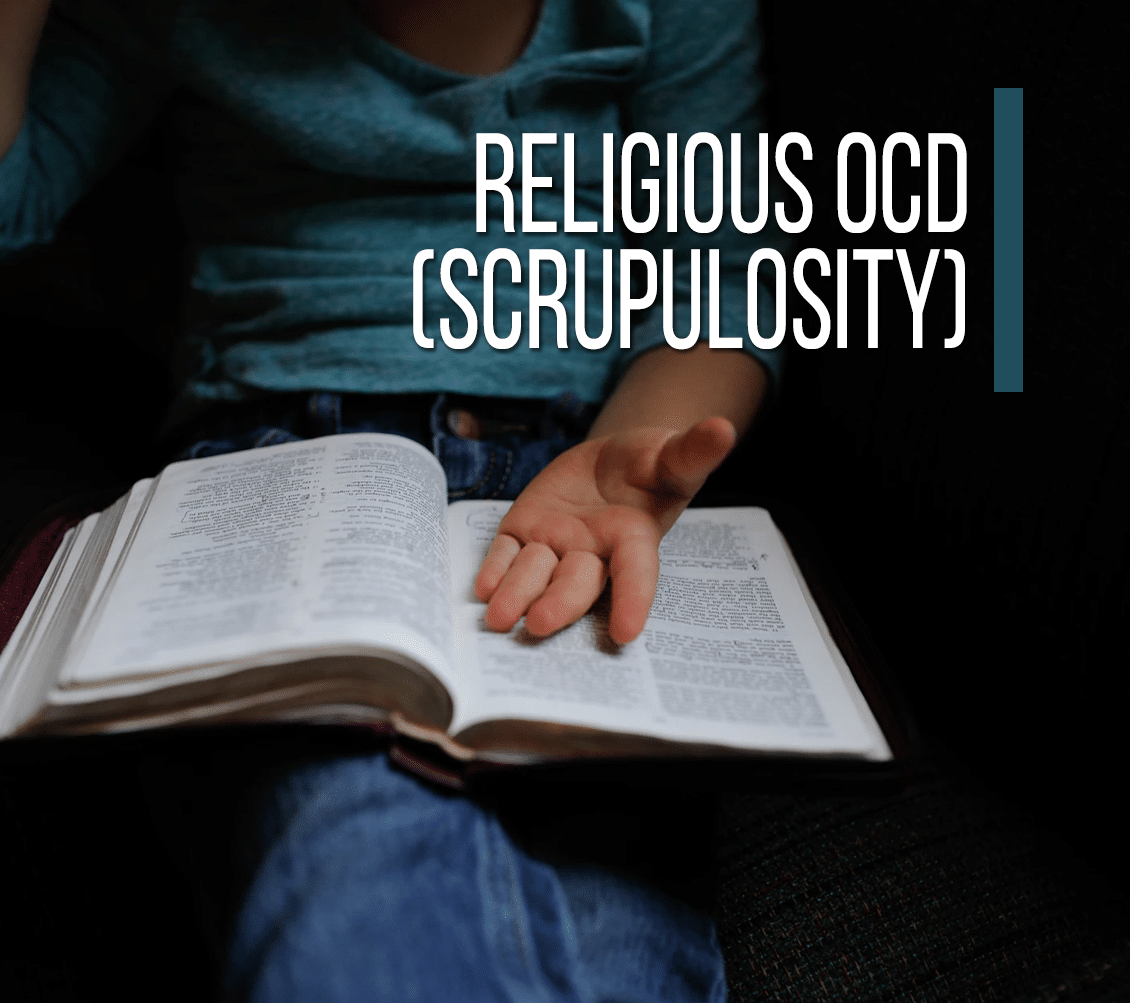You probably know about and have a basic idea of what Obsessive Compulsive Disorder (OCD) is, but you may not know that there are different forms of it.
One of the forms is called Religious OCD, also known as Scrupulosity, and Wikipedia describes it as below:
Scrupulosity is characterized by pathological guilt about moral or religious issues.
It is a criteria that is a subtype within OCD which has very real implications for Christians and so pastors and counselors should be aware of it. To give a better understanding of what it is, here is a thorough video on this specific symptom.
I didn’t know this form of OCD existed until this year. And when I began to read more about it I felt like someone had turned a light switch on in a dark room for me. I went to my therapist with this discovery and I was asked some questions, and it was confirmed: I have Religious OCD. While it’s not something anyone really wants to hear— I was finally going to get help because my internal struggle had a name.
This article is not to just share my story, in fact, I have struggled with sharing it because it is such a personal thing. But I hope that in sharing it, others will be able to find a light switch for themselves.
Obsessions for People With Religious OCD
All of the obsessions you’ll see below are centered around fear. As you can imagine, living a life with these fears always present is not an easy thing.
- One obsession is that of not praying “correctly” as if there is a “right way” to pray.
This fear caused me to write out prayers to try to make them “just right”, and also caused me to obsessively read prayers in the Bible and pray them, all with the hopes of praying the “correct way”. I can’t tell you how many times I’ve prayed the Sinner’s Prayer.
- Another obsession is that of trying to live the life that God “approves of” or “wants”.
This often leads me to believe I need to become a missionary or become a nun (even though I’m not even Catholic) as if these are the only ways to live in the way God wants or approves of us to live.
- Yet another obsession is that of obsessing over whether one has sinned or done anything that might be a “sin”.
Even just saying, “I’m doing good, thank you.” when someone asks me how I’m doing when I’m not actually doing good leaves me obsessing over the fact that I have “lied”. If I taste a new dish that someone has prepared for me and they ask me if I like it and I don’t but say, “I do, thank you.” I feel again that I have lied. This has caused me to figure out ways, to tell the truth specifically so that I don’t feel like I lied. So instead of saying I liked the dish, I say, “Can I have the recipe?” or “I’ve never had it before!” or even, “Thank you for making this for me.”
Compulsions For People With Scrupulosity
The obsessions above lead to compulsions which feel impossible to resist to the sufferer. These compulsions are different for every person but the most common ones are these below.
- Going to Church or Confession
Not going to church feels like an unforgivable sin which I was forced to work through because of chronic physical health problems that forced me to stay home a lot of times, For me confessing was a very strong compulsion, one that I still have to fight against. This often caused me to confess not only to God but even to my family members, apologizing and asking forgiveness. I’ve even had a few times where I did this with strangers who usually looked bewildered, and confused.
- A Chronic Need of Reassurance
If I didn’t feel reassured by God, I’d often once again turn to my parents, or look for Bible verses that could give me reassurance.
- Repetitive Praying
If one prayer didn’t seem to be “enough” then I’d pray excessively until I felt like God was satisfied. I’d often wake up in the night fearful that I hadn’t prayed enough times before going to sleep, and would try to stay awake and pray some more.
- Excessive Reflection
This still happens to me every day, where I think over something I did or said over and over, fearing it might have been blasphemous. I remember especially when I was little, overhearing a bad word, or seeing something wrong made me feel as if I had done something against God.
- Self-sacrifice or Punishing Oneself
While this can look different for every person with Scrupulosity, I’ve often knelt on my knees for as long as I could stand, or not allowed myself to read a favorite book for a determined amount of time to make up for something I felt I had done wrong.
What You Can Do With This Information?
If you or someone you know is struggling with Religious OCD you may want to seek out or encourage them to seek out help from a licensed healthcare professional who can help find what treatment option or therapy they think is best.
My therapist has personally helped me work through a lot of my struggles with Religious OCD by showing me ways I can keep it from taking over my life. And it’s also nice to just hear that you’re not alone, that other people struggle with it too.
Do you have Scrupulosity or know someone who does?
